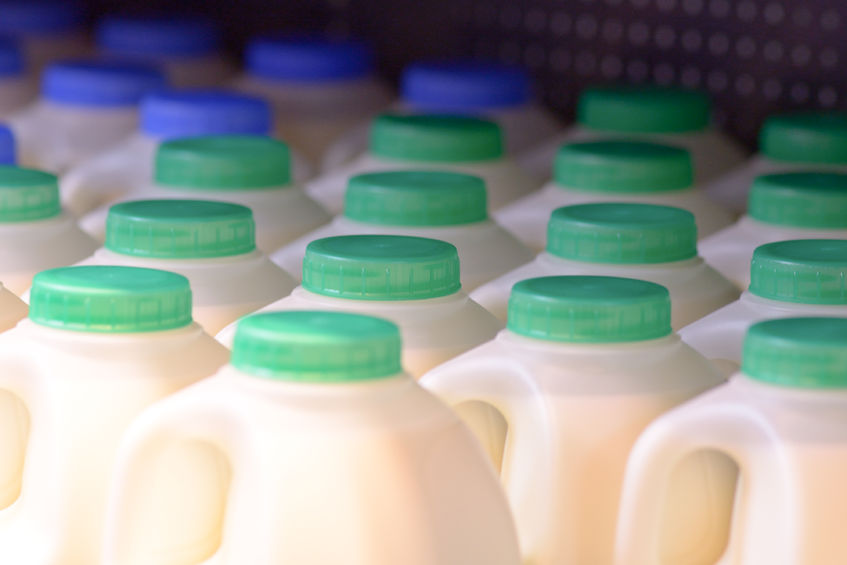
Scottish farmers have called for milk plastic packaging to be exempt from a Deposit Return Scheme due to fears it could bring an already strained industry additional costs.
First Minister Nicola Sturgeon announced last September that Scotland will introduce a deposit return system for drinks containers, aimed at increasing recycling and tackling litter.
Responding to the Scottish Government’s call for evidence on the scheme, NFU Scotland acknowledged the potential merits, but highlighted fears it could have a detrimental impact on the dairy industry, which has a heavily reliance on plastic.
As milk purchases have moved away from doorstep delivery to supermarkets and shops, the milk supply chain has become reliant on plastic containers for delivering fresh milk from the shop shelf to the fridge.
However, since local authorities already provide an effective recycling mechanism for these containers, the farming union is concerned that the proposed changes will add costs to the supply chain that already operates on small margins.
As such, the union is calling for fresh, liquid milk packaging to be excluded from the proposed scheme.
Other countries and states which run a similar scheme, such as Germany, British Columbia, Nova Scotia, Newfoundland, California, Maine and Hawaii, have implemented deposit return schemes with an exemption made for milk.
'Small margins'
NFU Scotland Milk Policy Manager, George Jamieson said the introduction of a deposit return scheme on milk packaging will bring additional costs to an industry already under strain.
“The fresh milk chain is one that sees the process of milking, cooling, farm collection, processing, pasteurisation, packaging and delivering to shop shelves often completed within 24 to 36 hours,” Mr Jamieson said.
“That is a high value chain delivering a fresh, nutritious product but one that traditionally operates on small margins.”
Farmers fear, based on past experience, that any additional cost will be passed back to the farmgate and a lower milk price.
Mr Jamieson added: “Our thoughts are that exempting milk containers from deposit return but continuing to encourage and promote recycling through kerbside collection – a system that is currently working well - will still deliver on our recycling ambitions but without huge additional cost on the dairy sector.”
The Government has committed to eliminating all avoidable plastic waste by 2042 in the UK, as stated in its environmental plan for the next 25-years.
A Cotswold dairy company has joined nation-wide efforts to reduce the amount of plastic it uses by using glass milk bottles.
The bottles can be rinsed and reused on an average of 50 trips. Cotteswold Dairy, based in Gloucestershire, said milk stored in glass bottles "tastes better", too.
